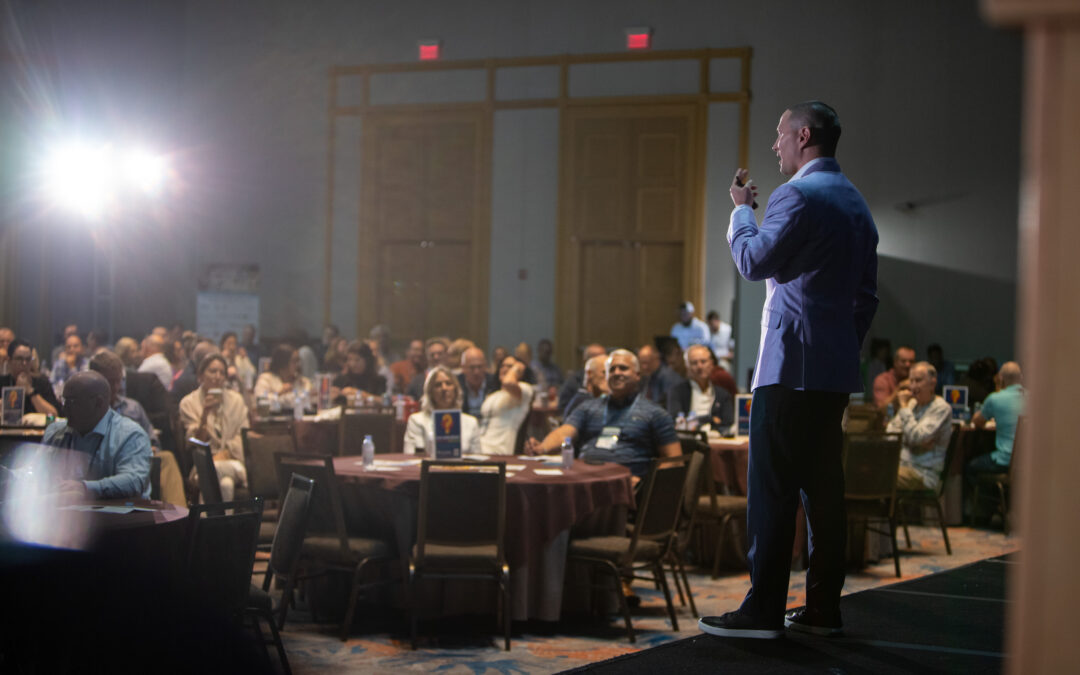Community association management companies need to address things like mentorship, burnout, and conflict resolution to better support, enhance, and spur growth among staff members and board member clients. Leadership lessons about adapting a company culture, improving satisfaction, and focusing on well-being were shared with executives at CAI’s 2023 CEO-MC Retreat in Fort Lauderdale, Fla., in September.
Leadership lesson #1: Mentorship
According to leadership strategist Ted Ma, mentorship is a powerful tool to create and sustain healthy and vibrant communities and companies. “Mentorship matters more than leadership alone,” Ma says. “Leaders focus on direction. Mentors focus on relationships and the development of the individual.”
At the CEO-MC Retreat, Ma spoke about a “mentorship manifesto” that requires leaders at all levels to prioritize developing others and emphasize building and nurturing relationships. Mentorship empowers employees and offers a competitive advantage. “It increases loyalty and performance and turns potential into flames of achievement,” he says.
Mentors need to express beliefs, share mistakes, ask questions, and show empathy and vulnerability. They also must speak up and challenge colleagues’ comfort zones. Mentors aren’t afraid to have difficult conversations; they help colleagues develop a growth plan. Mentors also focus on solutions and deliver meaningful feedback that addresses behavior rather than personal qualities, Ma says.
Great mentors are active listeners, demonstrate empathy and trustworthiness, and are lifelong learners, he adds.
Leadership lesson #2: Burnout
David Graf, president of CAI’s College of Community Association Lawyers, told CEO-MC participants that professional fatigue is more of a larger “happiness problem.” He urged executives to take the time to acknowledge and reflect on personal thoughts and feelings and make needed changes when feeling overwhelmed at work.
Graf, an attorney with Moeller Graf in Englewood, Colo., knows a little bit about attitude adjustment after suffering a debilitating stroke. Graf encourages executives to assess their feelings and to seek therapy, training, or coaching to address them. Building awareness, prioritizing self-care, and learning new skills can help executives more effectively tackle personal and professional challenges, says Graf, who also works as a life coach.
Leadership lesson #3: Conflict resolution
Handling confrontation is an important component in community management.
OMNI Community Management executives Julie Adamen and Rolf Crocker, AMS, say addressing “the elephant in the room” saves time, energy and money, initiates discussion, and allows for personal and professional growth. It also builds trust and unity while encouraging staff to bring forth their problems, says Adamen, who is based in Saddlebrook, Ariz.
An open-door policy fosters staff confidence and demonstrates integrity. Staff is “watching you,” says Crocker, who is based in Fair Oak, Calif. “Be aware of your influence, and make decisions that reinforce company values.”
Adamen and Crocker advised participants to manage emotions when dealing with confrontations, have a plan to address issues, and know how to move forward. Timing and tone also are important. Executives should help their employees anticipate consequences.
Even though it may be messy, Adamen says implementing these leadership lessons and confronting problems honestly and openly “is where the learning happens.”


